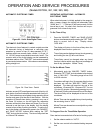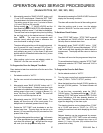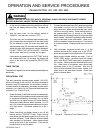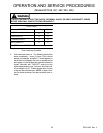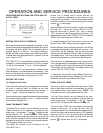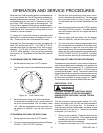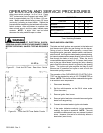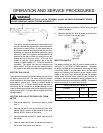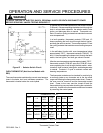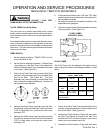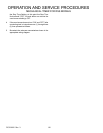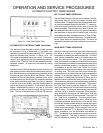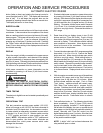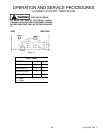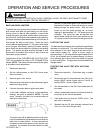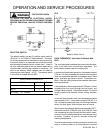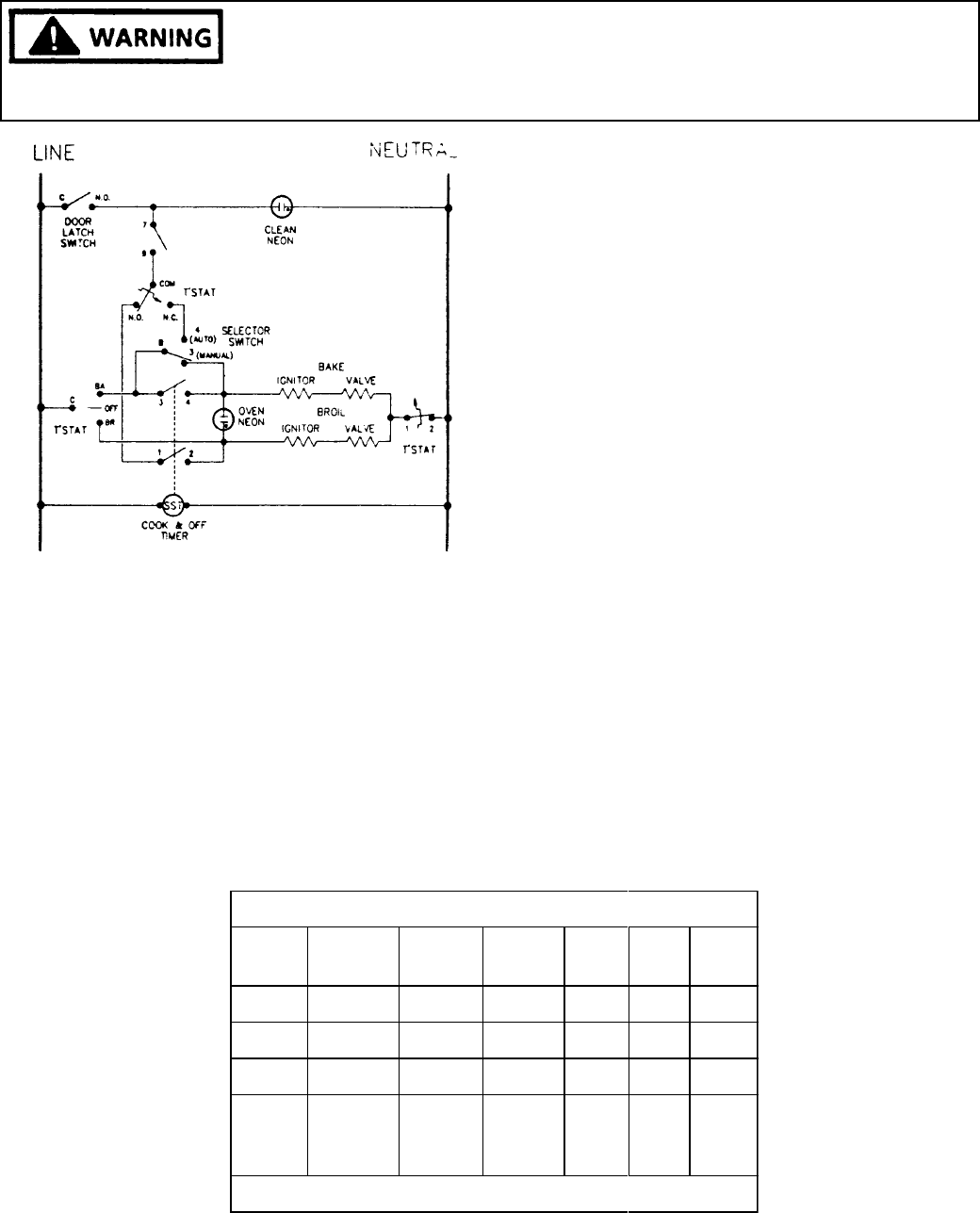
OPERATION AND SERVICE PROCEDURES
RC231002 Rev. 3 64
THERMOSTAT (T’STAT)
KNOB
1-2
COM.
N.O.
COM.
N.C.
C-BR C-BA 7-9
OFF
N.S. N.S. N.S. O O O
BAKE
CYCLES N.S N.S O X O
BROIL
CYCLES N.S N.S. X O O
CLEAN
CYCLES
X
BELOW
700°F
X
ABOVE
700°F
O O X
O = OPEN X = CLOSED N.S. = NOT SPECIFIED
Thermostat Contact Chart
In manual and timed bake operations, thermostat contacts
C-BA and 1-2 close completing the bake circuit through the
clock in a timed bake operation, the selector switch, bake
ignitor, and bake gas valve to neutral. Thermostat con-
tacts 1-2 are the cycling contacts that maintain the correct
oven temperatures.
In a broil operation, thermostat contacts C-BR and 1-2
close completing the broil circuit through the broil ignitor,
and broil gas valve to neutral. Thermostat contacts 1-2 are
the cycling contacts that maintain correct broiling tempera-
tures.
In the self-clean function with oven temperatures below
approximately 700°F., thermostat contacts COM-NO, 7-9
and 1-2 close completing the clean circuit through the latch
switch, the broil ignitor, and broil gas valve to neutral.
After the oven temperature reaches approximately 700°F.,
thermostat contacts COM-NO open and COM-NC close
now completing the circuit through the latch switch, selec-
tor switch, timer contacts, bake ignitor, and bake gas valve
to neutral. Contacts 1-2 cycle to maintain correct self-
cleaning temperatures.
The thermostat contacts can be checked for continuity by
a continuity tester or an ohmmeter set to the low ohms
range and following the thermostat contact chart. Power to
the oven must be turned off and the thermostat contact
chart. Power to the oven msut be turned off and the
thermostat wiring removed when checking the contacts for
continuity. Access to the thermostat contacts can be made
by removing the control panel.
Figure 67 - Selector Switch Circuit
OVEN THERMOSTAT (Not Used on Models with
ERC)
The oven thermostat maintains the correct oven tempera-
tures in the bake, broil, and self-clean operations. The
thermostat is located under the control panel.
TO AVOID THE RISK OF ELECTRIC SHOCK, PERSONAL INJURY OR DEATH DISCONNECT POWER
BEFORE SERVICING, UNLESS TESTING REQUIRES IT.



